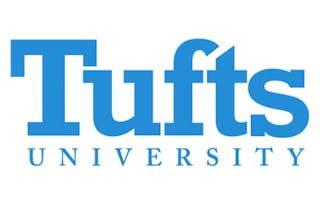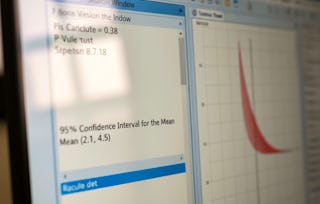This introductory course is for SAS software users who perform statistical analyses using SAS/STAT software. The focus is on t tests, ANOVA, and linear regression, and includes a brief introduction to logistic regression.

Introduction to Statistical Analysis: Hypothesis Testing

Introduction to Statistical Analysis: Hypothesis Testing
This course is part of SAS Statistical Business Analyst Professional Certificate

Instructor: Jordan Bakerman
Access provided by Mojatu Foundation
23,336 already enrolled
175 reviews
Skills you'll gain
Details to know

Add to your LinkedIn profile
28 assignments
See how employees at top companies are mastering in-demand skills

Build your Data Analysis expertise
- Learn new concepts from industry experts
- Gain a foundational understanding of a subject or tool
- Develop job-relevant skills with hands-on projects
- Earn a shareable career certificate from SAS

There are 4 modules in this course
In this module you learn about the course and the data you analyze in this course. Then you set up the data you need to do the practices in the course.
What's included
2 videos6 readings
In this module you learn about the models required to analyze different types of data and the difference between explanatory vs predictive modeling. Then you review fundamental statistical concepts, such as the sampling distribution of a mean, hypothesis testing, p-values, and confidence intervals. After reviewing these concepts, you apply one-sample and two-sample t tests to data to confirm or reject preconceived hypotheses.
What's included
17 videos2 readings9 assignments
In this module you learn to use graphical tools that can help determine which predictors are likely or unlikely to be useful. Then you learn to augment these graphical explorations with correlation analyses that describe linear relationships between potential predictors and our response variable. After you determine potential predictors, tools like ANOVA and regression help you assess the quality of the relationship between the response and predictors.
What's included
29 videos2 readings14 assignments
In this module you expand the one-way ANOVA model to a two-factor analysis of variance and then extend simple linear regression to multiple regression with two predictors. After you understand the concepts of two-way ANOVA and multiple linear regression with two predictors, you'll have the skills to fit and interpret models with many variables.
What's included
13 videos1 reading5 assignments
Earn a career certificate
Add this credential to your LinkedIn profile, resume, or CV. Share it on social media and in your performance review.
Instructor

Offered by
Why people choose Coursera for their career

Felipe M.

Jennifer J.

Larry W.

Chaitanya A.
Learner reviews
- 5 stars
78.28%
- 4 stars
16%
- 3 stars
2.28%
- 2 stars
1.14%
- 1 star
2.28%
Showing 3 of 175
Reviewed on Jun 14, 2021
Thank you so much to the instructor, Jordan Bakerman for teaching this course.
Reviewed on Dec 6, 2025
excellent course - moreless a refresher course for me but still an excellent overall very thorough study
Reviewed on Jun 28, 2021
Thoroughly enjoyed this course. In depth explanation of hypothesis testing, ANOVA and Regression, explained very clearly using SAS.
Explore more from Data Science

Tufts University

American Psychological Association



